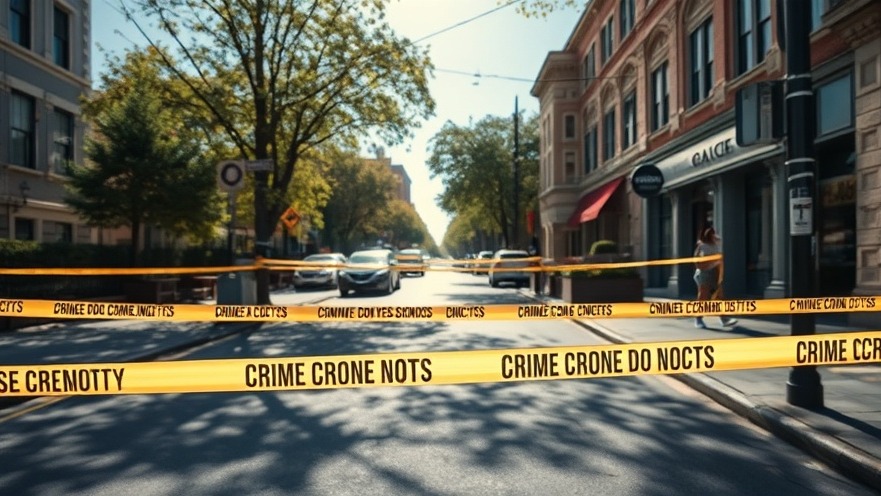
A Hostile Takeover: A City’s Plea for Control
On August 15, 2025, the District of Columbia found itself at the center of a fierce legal battle, as city officials took a stand against what they termed a "hostile takeover" of their police department by the Trump administration. The legal action, spearheaded by Attorney General Brian Schwalb, seeks an emergency restraining order to maintain local control over the Metropolitan Police Department (MPD). Schwalb's lawsuit follows a contentious directive from U.S. Attorney General Pam Bondi, who appointed Terry Cole, the head of the Drug Enforcement Administration (DEA), to veer away from local governance and oversee the city’s police. This unprecedented move, described by Schwalb as an abuse of federal power, raises critical questions about the extent of federal authority and governance in the nation’s capital. The suit emphasizes that the federal government’s intervention has gone far beyond legal limits defined under the Home Rule Act, which stipulates the governance structure for Washington D.C. As tensions escalate, this legal confrontation shines a light on larger issues of civil liberties and local autonomy.
Crisis Declaration: Federal Oversight or Political Maneuver?
The drama unfolded just days after President Trump declared a crisis in Washington D.C., citing rising crime and homelessness as justifications for deploying federal troops to the city. Critics argue that labeling a crisis serves more as a political maneuver than addressing the rooted problems that afflict urban governance. Last week’s developments accelerated the already strained relationship between local leaders and federal authority. In contrasting perspectives, supporters of the administration claim that federal oversight is necessary for safety, while opponents view it as a blatant overreach. "This is not just about law enforcement; it’s about the rights of D.C. residents to govern themselves without federal interference," said Schwalb. Local leaders are concerned that this federal mandate is not a one-time occurrence but a potential precedent for eroding the city’s autonomy.
Parallel Examples: Federal Control of Local Institutions
Similar scenarios of federal encroachment into local governance have emerged in other states, most notably in areas of education and public health policies. For instance, many states have viewed the federal government’s involvement in school curriculums and health mandates during the COVID-19 pandemic as an infringement on state rights, igniting debates around sovereignty and local governance. In Michigan, the Trump administration's efforts to enforce educational standards drew ire from local officials who demanded control over what was taught in their own schools. Such patterns reveal a growing sentiment among states that federal intervention can disrupt local priorities and community trust.
The Broader Implications: What This Means for D.C. Residents
As residents of D.C. watch closely, this battle is about more than just policing; it’s a referendum on self-governance and civil rights. Activists in the city champion local control as a right, diminishing any narrative that suggests federal intervention equates to better governance. Community representatives have expressed fears that without local oversight, police practices may not reflect the needs or values of the community. Furthermore, as Congress and the President gear up for another contentious election cycle, the implications of this case extend to the political arena as well. Discussions about D.C. statehood, voting rights, and representation are likely to be reignited. The outcome of this lawsuit could set critical precedents for the future claims of autonomy and governance in U.S. territories.
The Road Ahead: Legal and Political Ramifications
As the legal proceedings progress, both local and national observers will be scrutinizing the courts' decisions. This case could become a landmark ruling regarding the limits of federal authority over local jurisdictions. Beyond legality, the political ramifications could reverberate through upcoming elections, highlighting urgent issues like crime rates, electoral rights, and the persistent struggle for D.C. statehood. For now, D.C. residents await the court’s decision while grappling with the reality of administrative controversies that undeniably affect their day-to-day lives. The growing tension between local and federal authorities may symbolize a larger national struggle over governance, civil rights, and democracy in America. In this chaotic landscape, awareness is key. Understanding the dynamics at play in D.C. today can inform voters and residents across the nation about their rights during tumultuous governance. The importance of local representation and advocacy has never been more pronounced.
 Add Element
Add Element  Add Row
Add Row 



Write A Comment